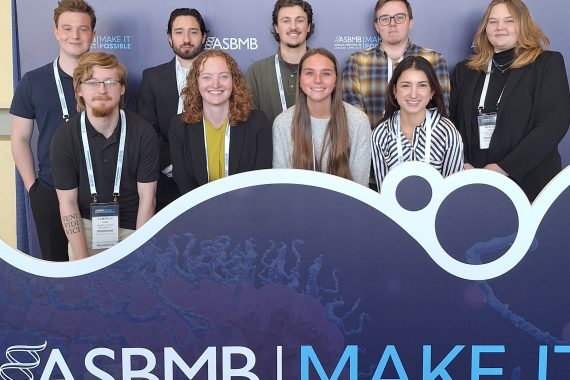
Nine students from Bemidji State University’s Biochemistry, Cellular and Molecular Biology program recently presented original research at the 2025 Discover BMB conference, the annual meeting of the American Society for Biochemistry and Molecular Biology, held April 12–15 in Chicago.
The undergraduate researchers, mentored by BSU biology faculty Dr. Michael Hamann and Dr. Kjerstin Owens, presented posters alongside other undergraduate students, graduate students, postdoctoral researchers and professionals from national and international research institutions.
Four abstracts from the group’s projects will be published in the upcoming supplemental issue of the Journal of Biological Chemistry, a notable recognition for undergraduate research.
Emily Wade, Sophia Gruener, Cameron Thoe and Shawn Martin, mentored by Dr. Kjerstin Owens, presented Using Inhibitors of Succinate Dehydrogenase and Glycolysis to Treat Pancreatic Cancer Cells. Their research explored how pancreatic cancer cells differ metabolically from healthy pancreatic cells. By targeting two key metabolic pathways — the citric acid cycle (via succinate dehydrogenase) and glycolysis — they tested whether inhibiting these pathways would reduce cancer cell survival. Their findings may help guide the development of metabolic-based therapies for pancreatic cancer.
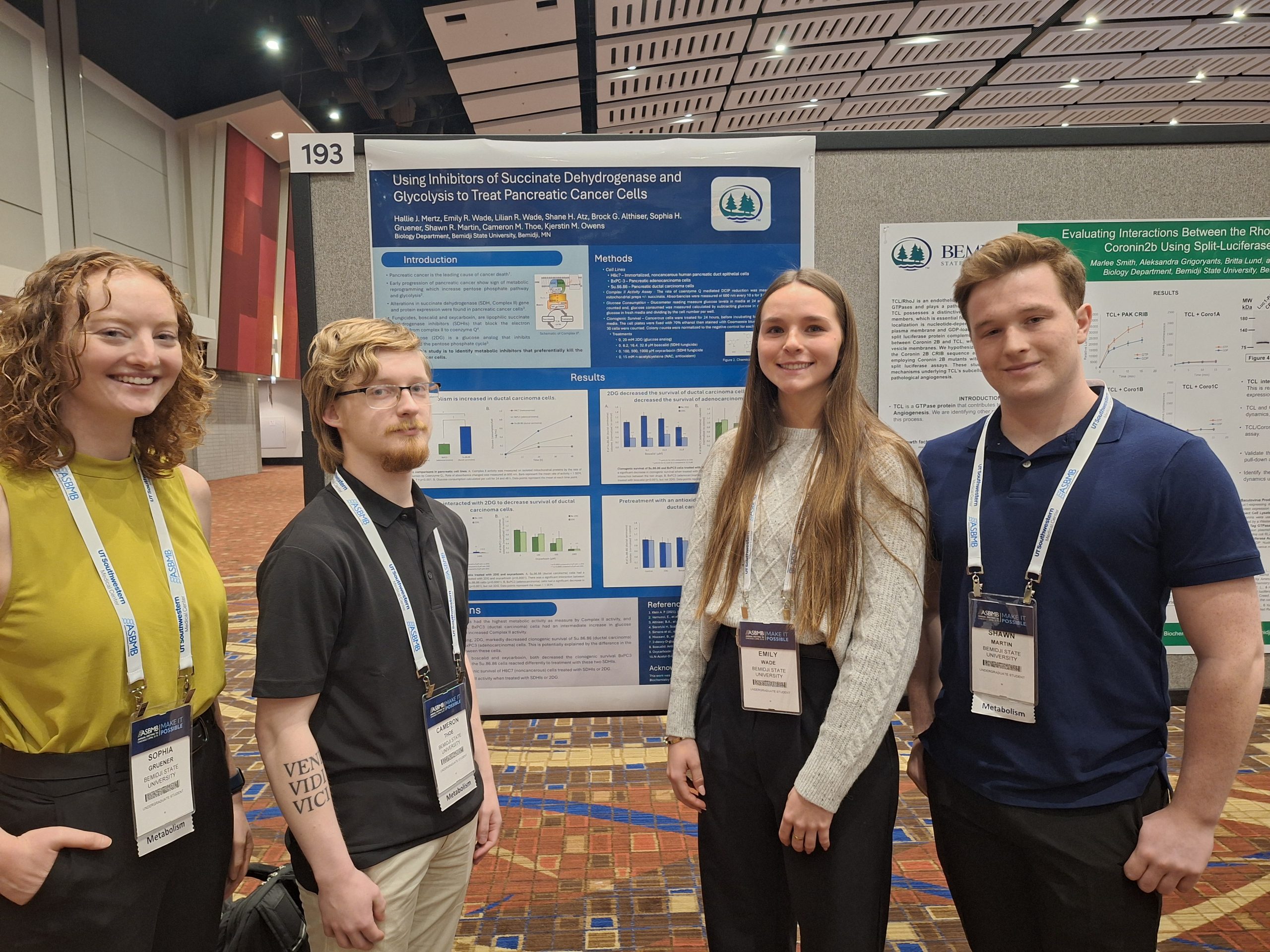
Marlee Smith and Aleksandra Grigoryants, working with Dr. Michael Hamann, presented Evaluating Interactions Between the Rho GTPase TCL and Coronin2b Using Split-Luciferase Assays. Their project focused on identifying and characterizing an interaction between two cellular proteins, TCL and Coronin2b, using a bioluminescence-based assay. This protein interaction may influence how blood vessels form around tumors — a process known as tumor-associated angiogenesis — which plays a critical role in cancer growth and metastasis.
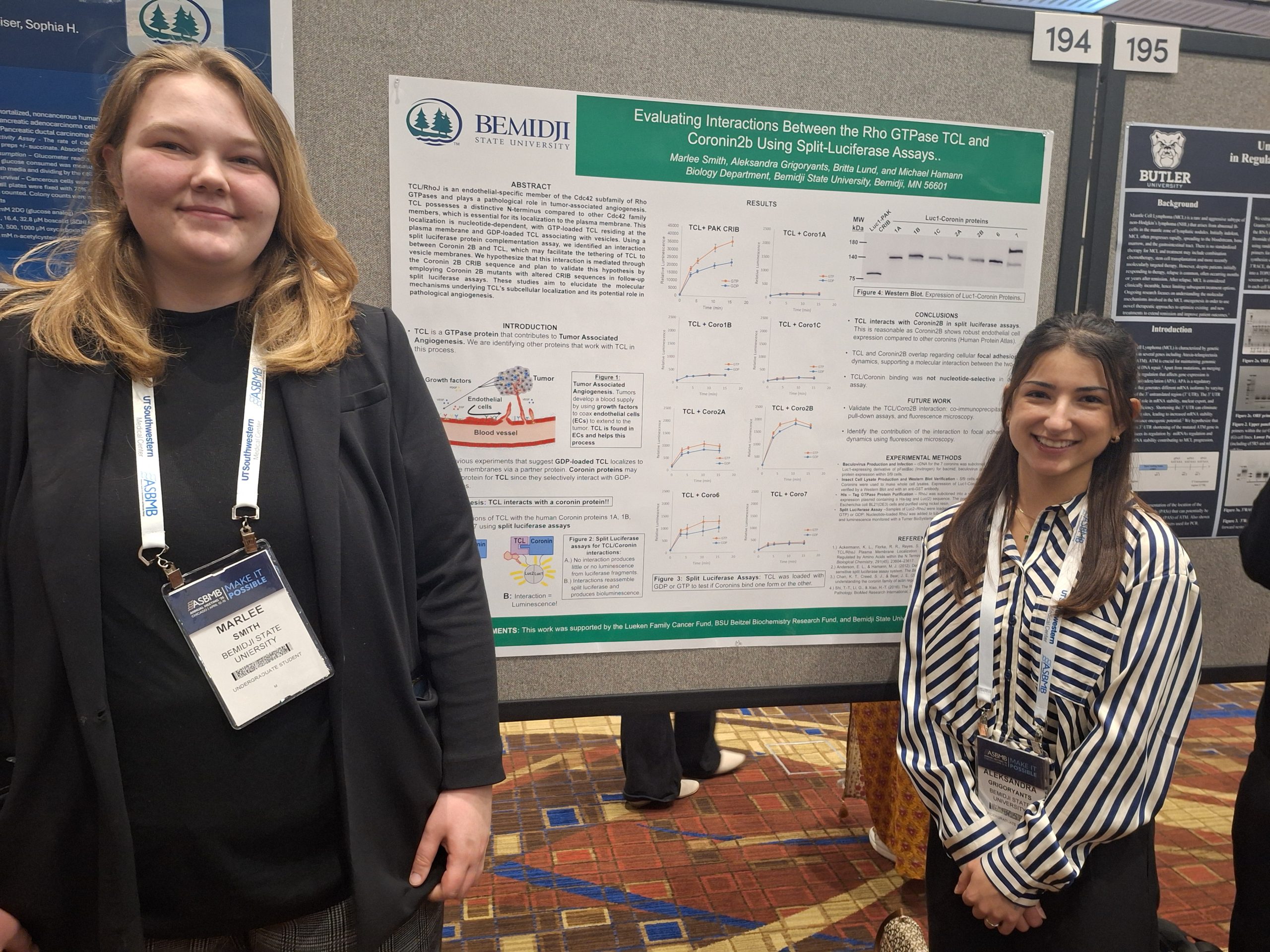
Robert Mangiamele and Dylan Cleveland, also mentored by Dr. Hamann, presented Evaluating the Roles of Rho Family GTPases in Basophilic KU812 Cell Degranulation. Their work investigated how Rho GTPase proteins regulate the release of histamine from basophilic cells — a key step in allergic responses. Using a human basophilic cell line (KU812), they explored how manipulating these proteins affects cell degranulation, which could provide insights into treating allergic and inflammatory conditions.
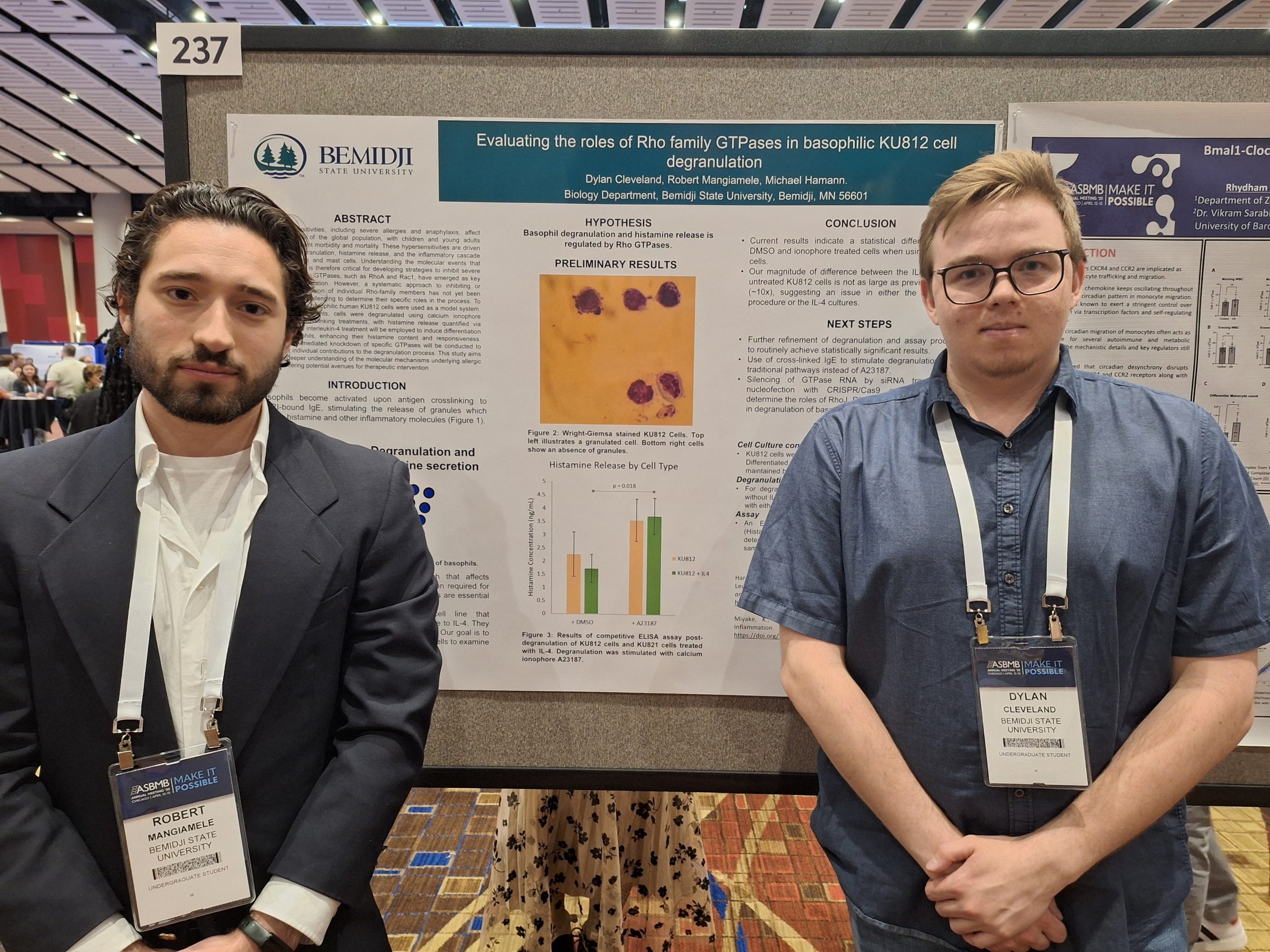
Trevor Rohder, under Dr. Hamann’s supervision, presented Investigating Binding of Plantoside Derivative Compounds to Penicillin Binding Protein (PBP). His research examined how plantoside-derived compounds — a class of naturally occurring molecules — interact with penicillin-binding proteins in bacteria. Since these proteins are essential for bacterial cell wall synthesis, the project may help identify new compounds that combat antibiotic-resistant bacterial strains by targeting PBPs in novel ways.
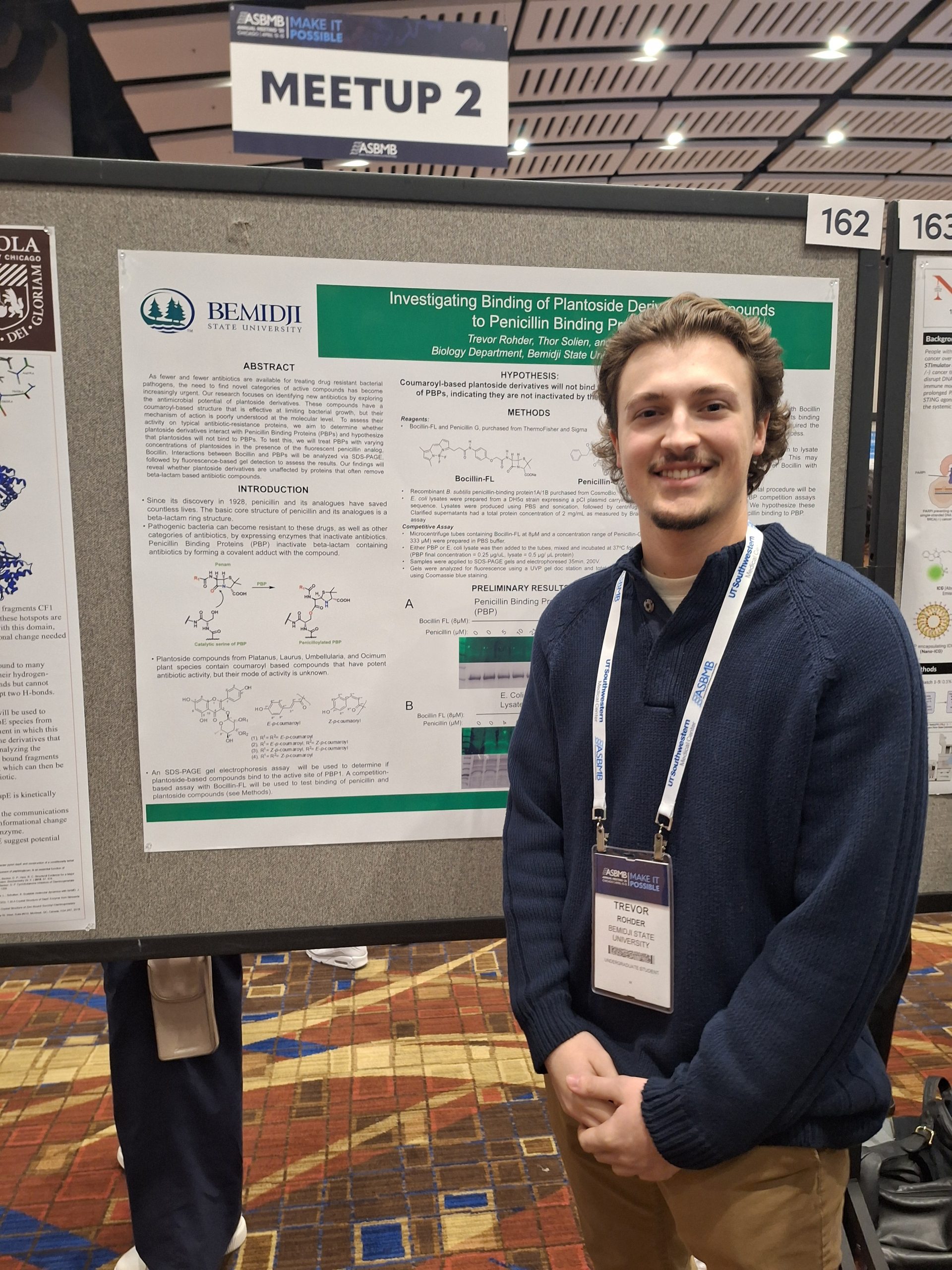
The students’ travel and participation were made possible through support from the Dr. Richard “Dick” Beitzel Biochemistry Student Research Fund and the Lueken’s Cancer Scholars Fund, both administered through the BSU Foundation.
Discover BMB, hosted annually by the American Society for Biochemistry and Molecular Biology, brings together thousands of scientists, educators and students to share cutting-edge research in the fields of biochemistry and molecular biology. The conference serves as a national platform for student researchers to gain professional experience and network with experts in the field.
Learn more about the 2025 Discover BMB conference at the American Society for Biochemistry and Molecular Biology website.
